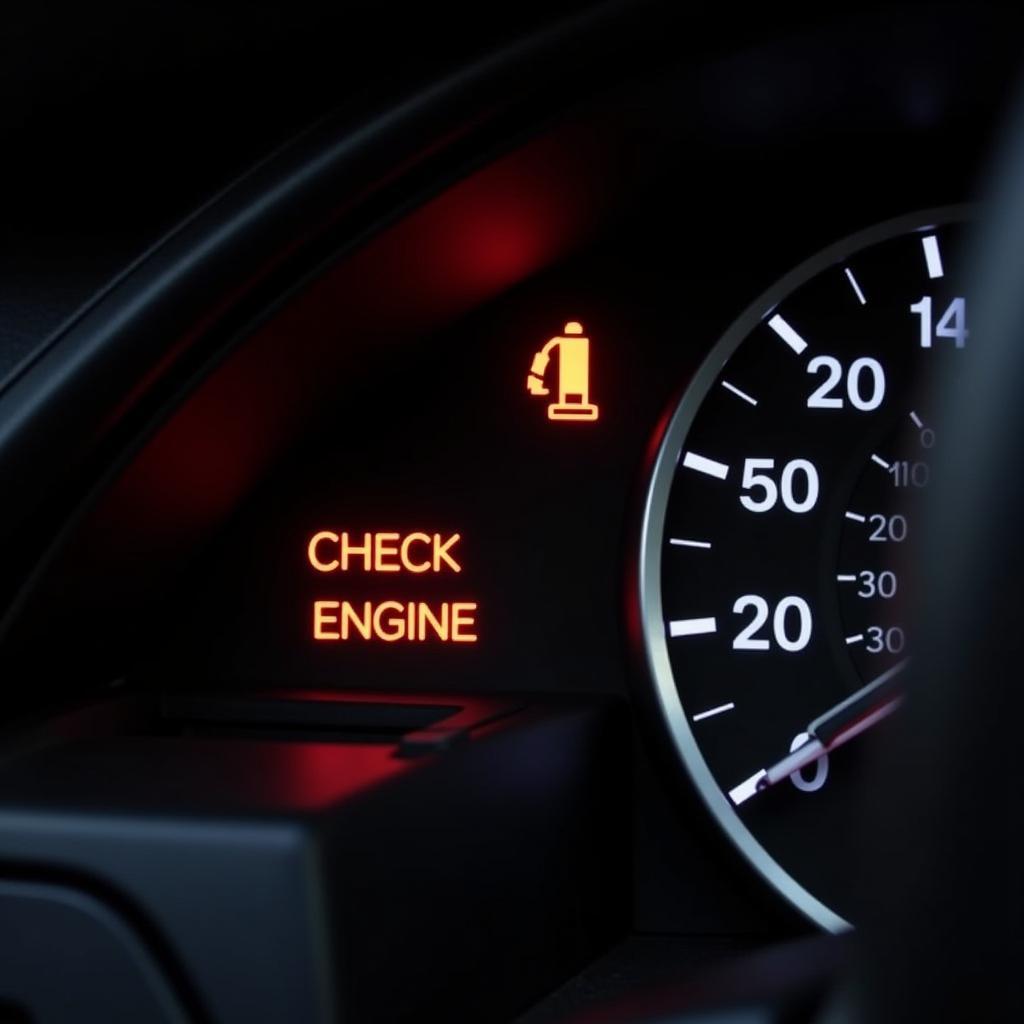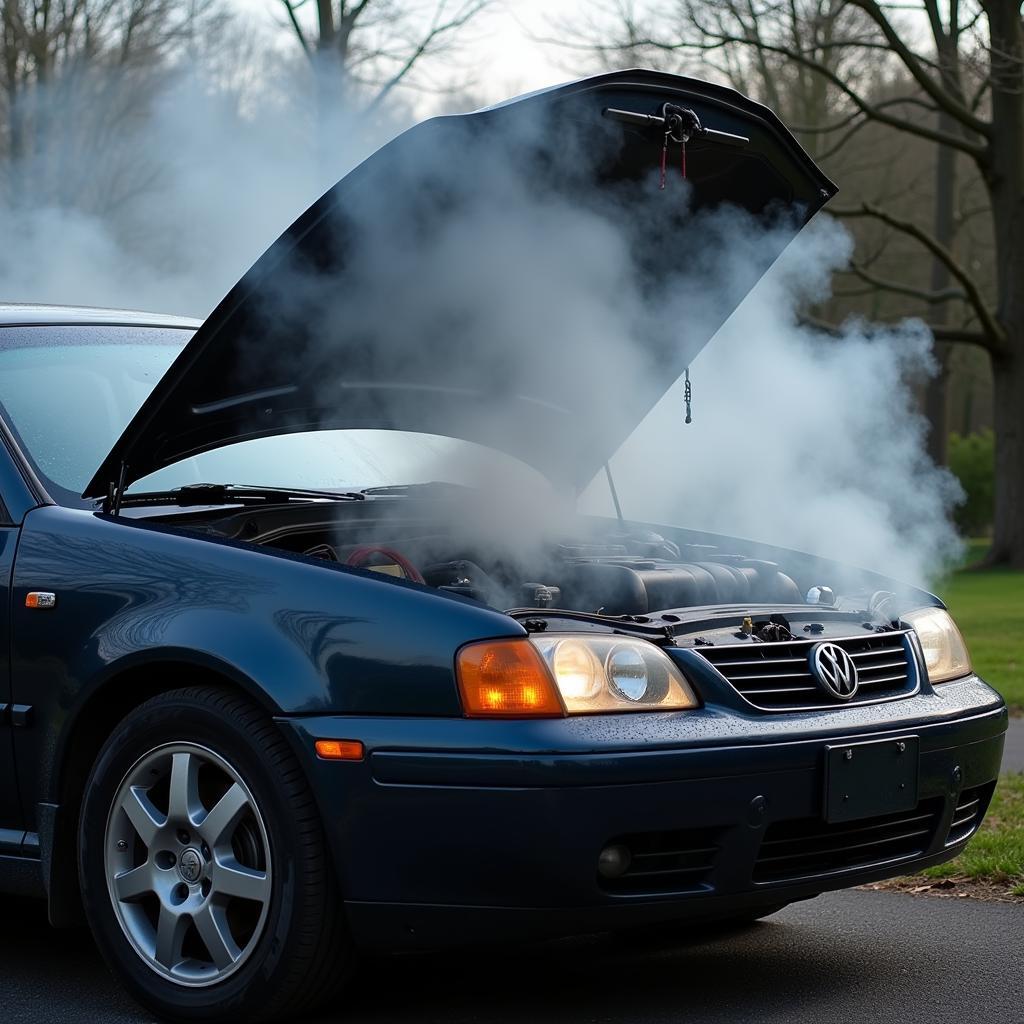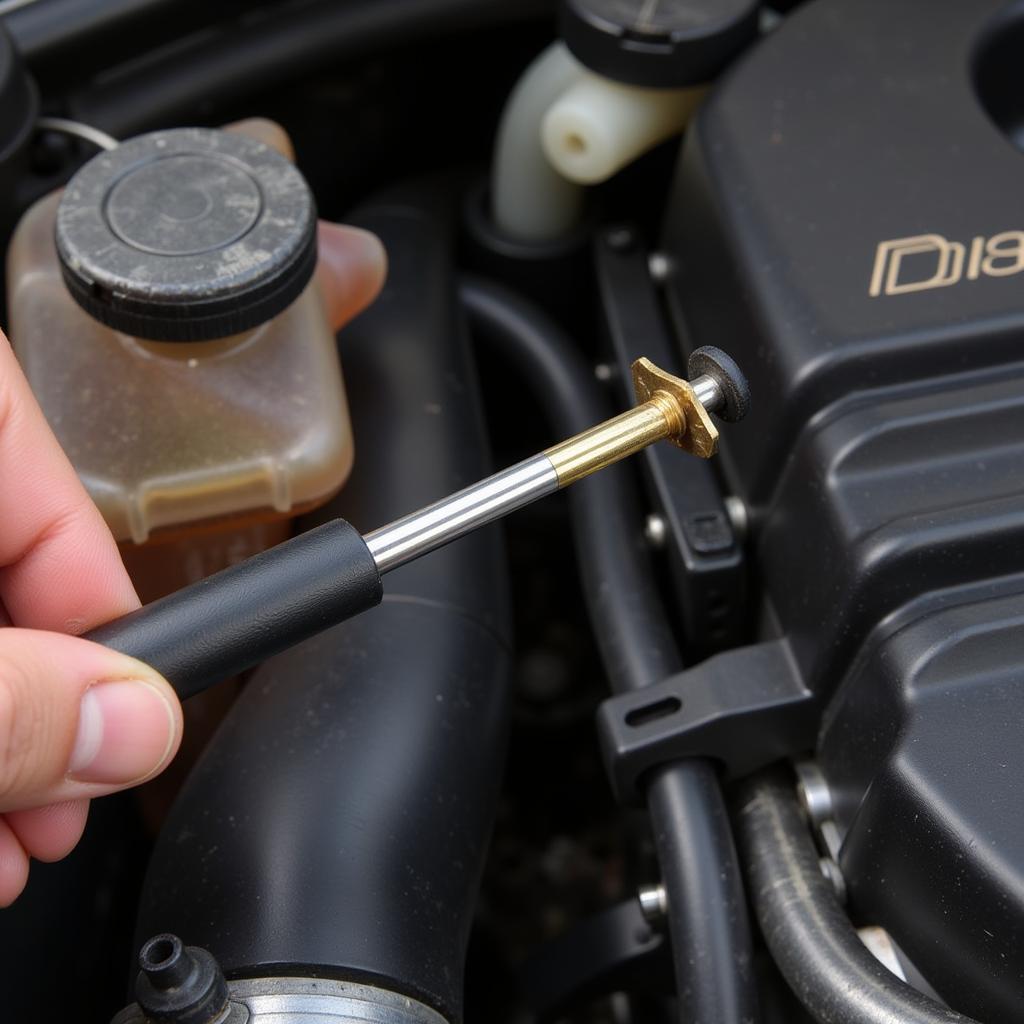Engine problems are a common issue for car owners, and they can be quite frustrating. However, understanding the common causes, symptoms, and solutions can help you diagnose and address the issue quickly and effectively.
This article will provide a comprehensive guide to Engine Problems In Cars, covering everything from identifying the root cause to finding the right solution. We’ll explore various symptoms, delve into possible causes, and offer practical tips for both car owners and mechanics.
Common Engine Problems and Their Symptoms
Engine Won’t Start
Possible Causes:
- Dead Battery: This is the most common reason for a car not starting. You can check the battery by looking for corrosion on the terminals or by using a voltmeter.
- Bad Starter: The starter motor is responsible for cranking the engine. If it’s faulty, the engine won’t turn over.
- Fuel System Issues: Problems with the fuel pump, fuel filter, or fuel injectors can prevent fuel from reaching the engine.
- Ignition System Problems: A faulty ignition coil, spark plugs, or distributor can cause a lack of spark.
What to Do:
- Check the battery: First, check the battery terminals for corrosion and ensure they are securely connected. If the battery is weak or dead, jump-start it using another car.
- Listen for clicking: If you hear a clicking sound, it might indicate a faulty starter motor.
- Check for fuel: Make sure the fuel tank is not empty and the fuel line is not blocked.
- Check the spark: If there’s no spark, inspect the ignition coil, spark plugs, and distributor for any issues.
Engine Misfiring
Possible Causes:
- Spark Plug Issues: Worn or fouled spark plugs can cause misfires.
- Ignition Coil Failure: A faulty ignition coil can prevent spark from reaching the spark plugs.
- Fuel Injector Problems: Clogged or faulty fuel injectors can result in an uneven fuel supply.
- Air Intake Leaks: Leaks in the air intake system can disrupt the air-fuel mixture.
Symptoms:
- Rough idling: The engine may shake or vibrate when it’s idling.
- Loss of power: You may notice a decrease in acceleration or a lack of power.
- Check engine light: The check engine light may illuminate, and a diagnostic code may be stored.
What to Do:
- Replace spark plugs: If the spark plugs are old or worn, replace them with new ones.
- Check the ignition coil: Inspect the ignition coil for any signs of damage or corrosion.
- Clean or replace fuel injectors: If the fuel injectors are clogged, clean them or replace them with new ones.
- Inspect air intake system: Look for any leaks or cracks in the air intake system.
 Car Engine Misfiring Symptoms
Car Engine Misfiring Symptoms
Engine Overheating
Possible Causes:
- Low Coolant Level: Insufficient coolant can cause the engine to overheat.
- Faulty Thermostat: A malfunctioning thermostat may prevent coolant from circulating properly.
- Radiator Issues: A clogged radiator or damaged radiator core can hinder the cooling process.
- Water Pump Failure: A broken water pump can prevent coolant from circulating.
Symptoms:
- Temperature gauge rising: The engine temperature gauge may climb above the normal range.
- Steam coming from the hood: If the engine is severely overheated, you may see steam coming from the hood.
- Engine light: The check engine light may illuminate, and a diagnostic code may be stored.
What to Do:
- Check coolant level: Add coolant to the reservoir if the level is low.
- Inspect thermostat: Check if the thermostat is opening and closing properly.
- Clean radiator: Flush the radiator to remove any debris or buildup.
- Inspect water pump: Check if the water pump is working correctly and not leaking.
 Overheated Engine with Steam
Overheated Engine with Steam
Engine Knocking or Pinging
Possible Causes:
- Low Octane Fuel: Using fuel with a lower octane rating than what your engine requires can cause knocking.
- Carbon Buildup: Excessive carbon buildup on the pistons and valves can cause knocking.
- Timing Issues: If the engine timing is off, it can cause knocking.
- Sensor Problems: Faulty knock sensors can prevent the engine from detecting and adjusting for knocking.
Symptoms:
- Loud knocking sound: You may hear a sharp knocking or pinging sound coming from the engine.
- Loss of power: You may notice a decrease in acceleration or a lack of power.
- Check engine light: The check engine light may illuminate, and a diagnostic code may be stored.
What to Do:
- Use recommended fuel: Use the octane rating of fuel recommended by your car manufacturer.
- Clean carbon deposits: Clean carbon deposits from the pistons and valves using a fuel system cleaner.
- Check timing: Ensure the engine timing is set correctly.
- Inspect knock sensors: Check if the knock sensors are functioning properly.
Engine Oil Consumption
Possible Causes:
- Worn Piston Rings: Worn piston rings can allow oil to leak past and be burned in the combustion chamber.
- Valve Stem Seals: Worn valve stem seals can allow oil to leak into the combustion chamber.
- Engine Block Leaks: Leaks in the engine block or head gasket can lead to oil consumption.
- Oil Filter Issues: A faulty oil filter can allow oil to bypass the filter and enter the engine.
Symptoms:
- Oil level dropping: You may notice the engine oil level dropping between oil changes.
- Blue smoke from exhaust: Burning oil can cause blue smoke to come from the exhaust.
- Oil smell: You may notice a burning oil smell coming from the engine.
What to Do:
- Check oil level: Regularly check the oil level and top it off if necessary.
- Replace oil filter: Replace the oil filter according to the manufacturer’s recommended schedule.
- Inspect engine for leaks: Check for oil leaks in the engine block, head gasket, and other areas.
- Consider engine repair: If the piston rings or valve stem seals are worn, you may need to have the engine repaired.
 Checking Engine Oil Level
Checking Engine Oil Level
Preventing Engine Problems
- Regular Maintenance: Follow the recommended maintenance schedule for your car, including oil changes, air filter replacement, and other services.
- Use High-Quality Fluids: Use high-quality engine oil, coolant, and other fluids as recommended by the manufacturer.
- Avoid Harsh Driving: Avoid aggressive acceleration and braking, as these can put excessive stress on the engine.
- Listen to Your Engine: Pay attention to any unusual noises or symptoms coming from the engine.
Expert Advice
“I’ve been a mechanic for over 20 years, and I always recommend getting your engine checked out at the first sign of trouble. Catching issues early can save you money and prevent major repairs down the road.” – John Smith, Master Mechanic
“When it comes to engine problems, prevention is key. Regular maintenance and proper care can help you avoid many common issues.” – Jane Doe, Certified Automotive Technician
Conclusion
Engine problems can be a source of frustration, but understanding the common causes, symptoms, and solutions can help you address them effectively. By following the advice in this article, you can keep your engine running smoothly and avoid costly repairs.
Remember, if you’re unsure about any engine problems, it’s always best to consult a qualified mechanic for diagnosis and repair.
For more information or to schedule an appointment, contact AutoTipPro:
Phone: +1 (641) 206-8880
Office: 500 N St Mary’s St, San Antonio, TX 78205, United States
FAQs:
1. What is the most common cause of engine problems?
The most common cause of engine problems is neglect. Ignoring routine maintenance can lead to a variety of issues.
2. How can I prevent engine problems?
Regular maintenance, using high-quality fluids, and avoiding harsh driving can help prevent engine problems.
3. When should I take my car to a mechanic for engine problems?
It’s best to take your car to a mechanic if you notice any unusual noises, symptoms, or if the check engine light is on.
4. How much does it cost to fix engine problems?
The cost of fixing engine problems can vary depending on the severity of the issue. Minor repairs may cost a few hundred dollars, while major repairs could cost thousands.
5. What are some common engine problems that can be fixed without replacing the engine?
Many common engine problems, such as a faulty spark plug, clogged fuel injectors, or low coolant levels, can be fixed without replacing the engine.




Leave a Reply